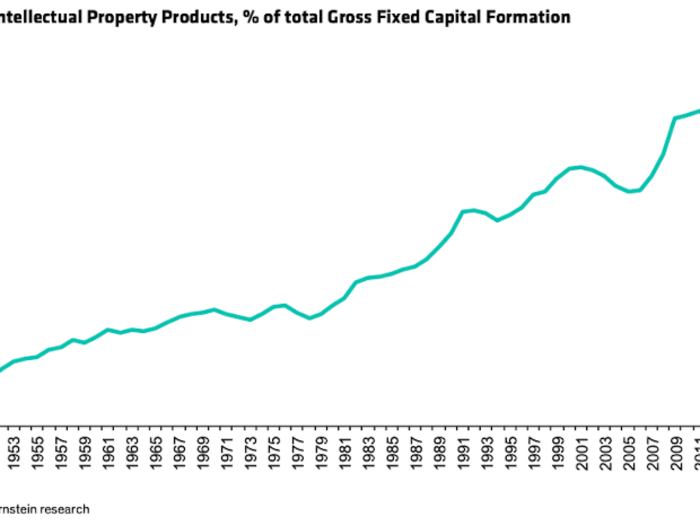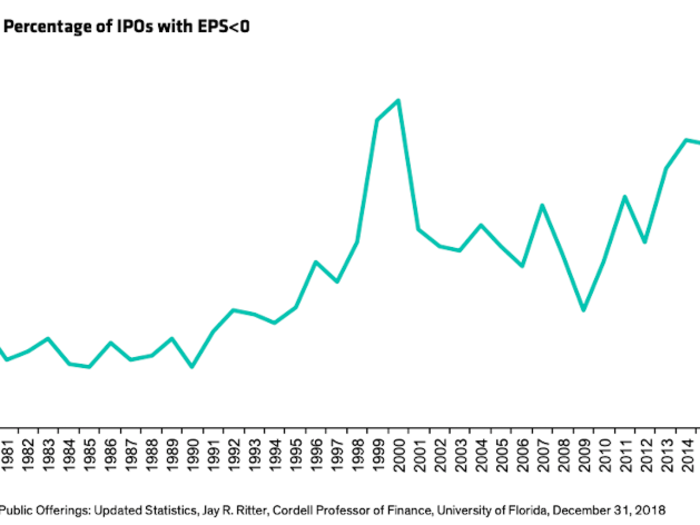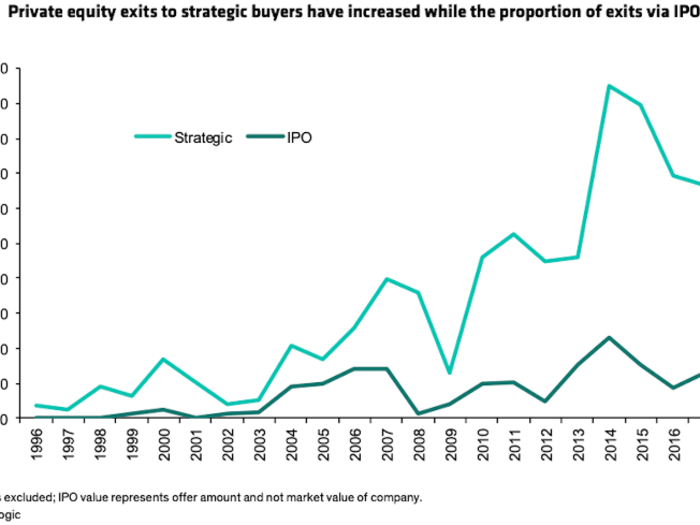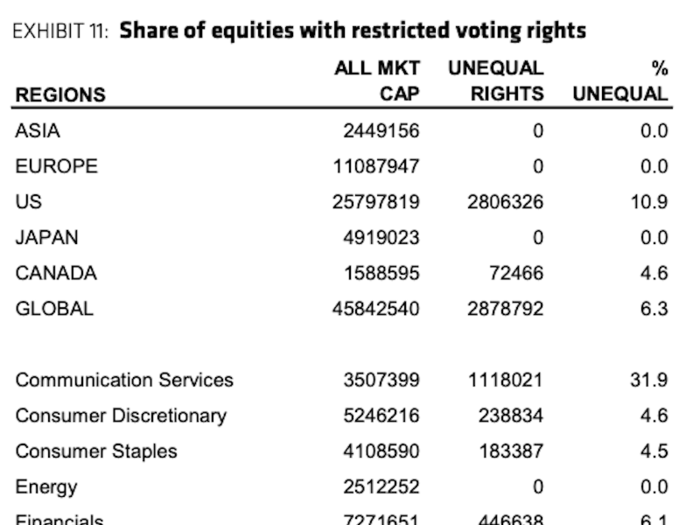- Home
- slideshows
- miscellaneous
- 5 major shifts reshaping the equities landscape made this Bernstein analyst ask, 'What is the point of the stock market"?
5 major shifts reshaping the equities landscape made this Bernstein analyst ask, 'What is the point of the stock market"?
Fewer companies are going public

Intellectual property is now at the heart of these companies' valuations.

On top of that, with the rise of tech, fewer companies actually make things in factories.
That means the way companies are valued has shifted to intellectual property, patents, and other "intangibles."
The value of those companies' "intangibles" means companies might carry a high asset value for their technology, but not make any money.
Uber and Lyft offer a great product to consumers, for example, but their financial results show that each company loses hundreds of millions of dollars a year.
As a result, because intangibles now make up a larger part of private company's assets, investors will see a high proportion of loss-making companies going into indexes in future.
Loss-making companies are taking over the stock market.

This chart shows the percentage of IPO companies that don't make any profit becoming a bigger and bigger part of the market. That last time this happened? The tech bubble in 2000, when 80% of companies were loss-making. But there are far fewer businesses going public now compared to then.
For investors, this is a real issue. "There is no other asset class that has a hope of delivering long-run positive real returns that has such a low cost of access with such a variety of return streams," according to Inigo Fraser Jenkins at Bernstein.
Meanwhile, private money is hoovering up companies.

The rate of companies getting funding from private equity is rising.
That's because there is an abundance of cash flowing around in private markets, making funding cheaper and more accessible than before.
Similarly, "private equity owners seem more inclined to sell to other private equity owners. This likely reflects the very large capital raising of private equity firms in recent years and the desperation to put this to work, while there have been outflows from many key public equity markets," according to Fraser Jenkins.
And these private investors often have more power over the companies they're invested in than public market investors.

Companies that give unequal voting rights to different share classes are very concentrated in the US and particularly in tech.
This means that some of the highest-growth companies in the world are effectively ungovernable by investors at a time when there is increasing pressure on returns and sustainable or ethical investing.
"This is further evidence that investors in arguably the highest growth area of public equities are experiencing a change in the nature of that investment," the note said. "This makes the split between private equity and public equity assets all the more stark, one can have full or partial control with the former but potentially no control with the latter."
The purpose of the stock market has changed as a result.

The "purpose of a public equity market in today's world is different" to years gone by, according to the note. Back then, it was a way for companies to fund capital investments, and investors saw it as a way to generate juicy returns.
The note said that now, for entrepreneurs "the purpose of a listing is more about liquidity, allowing them to motivate employees and for founders to exit should they wish."
And for investors, public markets offer liquidity, if not outsized returns.
"In a world where investment in private assets and infrastructure play a permanently larger role it is the liquidity of public equities that set them apart from most other assets," the note said. "Another key attribute for investors is the sheer scale of the public equity market, at $70Tn vs $5Tn for private equity (including private equity, VC, real estate, private debt)."
Popular Right Now
Popular Keywords
Advertisement